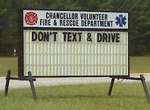There was an article this week in the Wall Street Journal about how Ford Motor Company is reaping financial rewards from its ongoing investments in advanced automobile technology, especially in “using information technology embedded in vehicles to learn customer preferences and reapply those lessons to future automobile designs.” The Journal article cites the recent lifting of Ford’s debt rating by Fitch as proof that its strategy is working, and by implication, that the technology problems cited by Ford CEO Alan Mulally last year are being solved.
Ford’s general manager and director of innovation Venkatesh Prasad at the company's new Silicon Valley research center told the Journal that, “data on usage of voice-recognition software, for instance, led to new design and materials choices intended to lessen noise levels inside the cabin that were interfering with the software’s ability to parse commands from ambient noise.” This in turn provided information that allowed Ford to adjust the placement of the microphones used to capture voice commands. The lesson was first applied to the Ford Focus and has now been adopted by other Ford product groups.This has, Prasad claimed, improved “overall customer satisfaction and press reviews of the other vehicles.”
All the major auto manufacturers have been busily adding computing technology to their product lines over the past decade, especially infotainment systems that connect to smart phones. However, as the technology use and inter-connectivity with driver personal devices has increased, so have governmental concerns that it is distracting drivers’ attention and leading to more traffic accidents. In February, I noted that U.S. Department of Transportation Secretary Ray LaHood announced voluntary guidelines (pdf) to "encourage automobile manufacturers to limit the distraction risk for in-vehicle electronic devices."
Especially high on Secretary LaHood’s (as well as the National Transportation Safety Board’s) priority list of distracted driving concerns is the increasing number of accidents attributed to drivers who are texting or using cell phones. Late yesterday, LaHood increased the priority level again by, for the first time, calling for national legislation to ban all calls or texting by all drivers including, apparently, hands-free calling, an action the NTSB recommended in December.
LaHood also said, according to this Reuters story, that “his department was researching the effect that hands-free devices and new systems like Ford Motor Company's Sync have on distracting drivers.” The story also says that LaHood has called “CEOs of major car companies and encouraged them to ‘think twice’ before placing too many Internet-based systems into new cars.”
Hmm, encouragement or warning?
So far, the automotive manufacturers have not reacted publicly to LaHood’s statements, although I suspect they are none too pleased. I’ll update this post when they do.
On a final note, LaHood also said yesterday that “he was not as concerned about people who eat, apply makeup, or perform other distracting activities in cars because ‘not everyone does that,’” but the ban is necessary because everyone has a cell phone.
Robert N. Charette is a Contributing Editor to IEEE Spectrum and an acknowledged international authority on information technology and systems risk management. A self-described “risk ecologist,” he is interested in the intersections of business, political, technological, and societal risks. Charette is an award-winning author of multiple books and numerous articles on the subjects of risk management, project and program management, innovation, and entrepreneurship. A Life Senior Member of the IEEE, Charette was a recipient of the IEEE Computer Society’s Golden Core Award in 2008.



